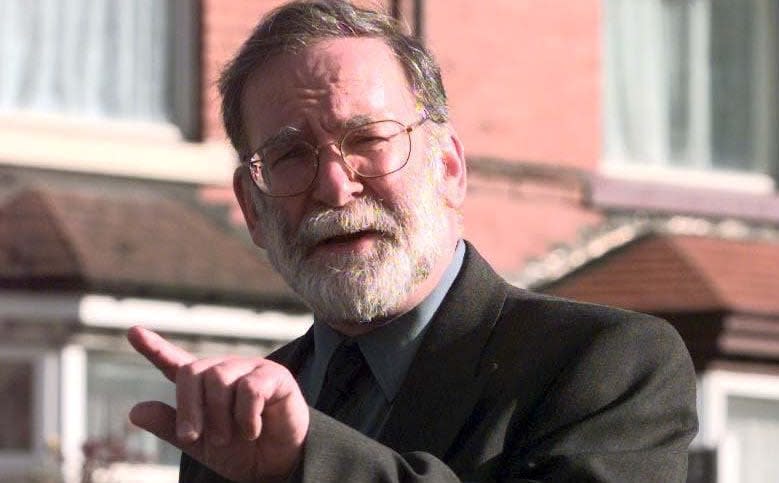‘Harold Shipman effect’ means doctors are ‘too scared to give painkillers to the terminally ill’

The “Shipman effect” means doctors are scared to give terminally ill patients painkillers, the assisted dying inquiry has heard.
Medics and lawmakers debated the ethics surrounding the controversial issue at the first oral evidence session of the inquiry on Tuesday.
Among those giving evidence was Baroness Finlay of Llandaff, a Welsh doctor, professor of palliative medicine, and House of Lords crossbencher.
She told the hearing that she has looked after “people who are in absolute despair” for decades. She warned of the risks involved in making it easier for people to take their own lives - whether in the UK or at Dignitas, the Swiss clinic that offers physician-assisted suicide to people with terminal illness or severe mental or physical illness.
She also claimed drugs that could make terminally ill patients more comfortable are not being prescribed in the necessary doses because doctors fear being associated with the serial killer, Dr Harold Shipman.
The English GP is considered to be one of the most prolific serial killers in modern history, after he administered lethal doses to patients and was found guilty in January 2000 of murdering 15 people under his care. He targeted elderly and vulnerable people by prescribing an abnormal amount of drugs or administering a fatal dose.
Assisted dying 'very poorly understood'
Baroness Finlay told the hearing: “The one thing that palliative care and assisted dying have in common is that they are very poorly understood – and that’s a real problem.
“We have the post-Shipman effect with opioids unfortunately, and now clinicians are reluctant to prescribe the type of dose which actually many patients need so it takes a bit longer to get there.
“I have seen patients who have been suicidal, have really discussed whether or not to go to Switzerland, but actually these requests and that suicidal ideation disappears when they get the care they need.”
She also told the hearing there are multiple cases in which doctors have got it “wrong”, with many patients previously diagnosed as terminally ill - including one of her own who was given a three-month prognosis in 1991 - still alive today. “He is just an example of how wrong we can be,” she said.
Law is 'such a mess'
Lord Falconer of Thoroton, the Labour peer and barrister who served as Lord Chancellor and justice secretary under Sir Tony Blair, the former prime minister, was also among those giving evidence.
Lord Falconer first introduced his Assisted Dying Bill, which proposed that any adult diagnosed with less than six months to live would be permitted assistance to end their own life, in the House of Lords in 2014. However, it ran out of time. A second attempt in 2020 also failed.
He told the hearing: “Where have we got to now? It's such a mess, the law now. We will allow people to go to Switzerland. We will allow people to be helped to go to Switzerland. We will investigate their loved ones when they come back, which is a hellish experience.
“The law is such a mess and I don't think I've met anybody who doesn't think that, and the law itself recognises that. I think it's time for a change.”
Currently, those who are present with their loved ones when they travel abroad to die face the risk of prosecution and up to 14 years in prison when they return to the UK.
The hearings continue.

 Yahoo News
Yahoo News 
